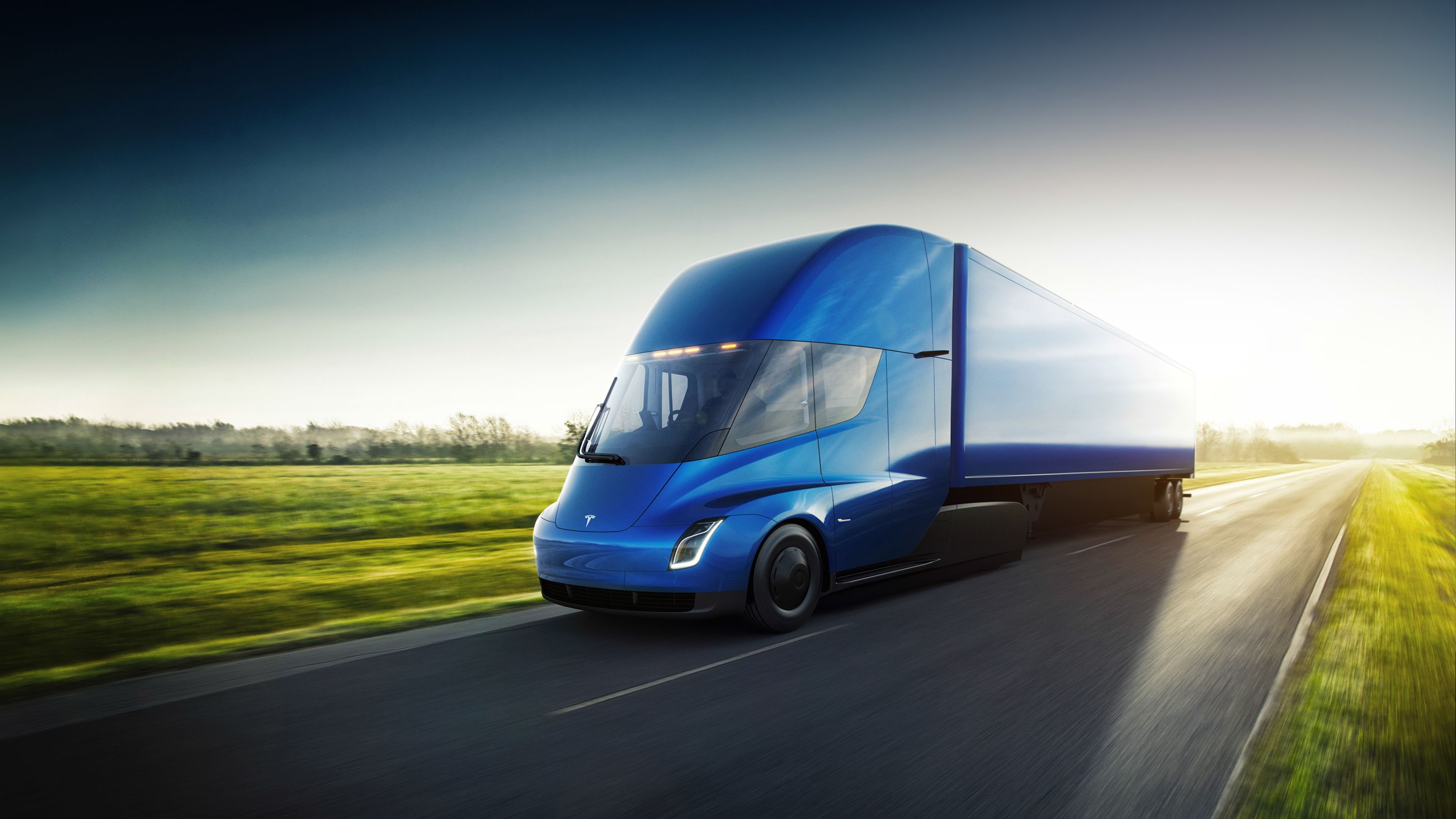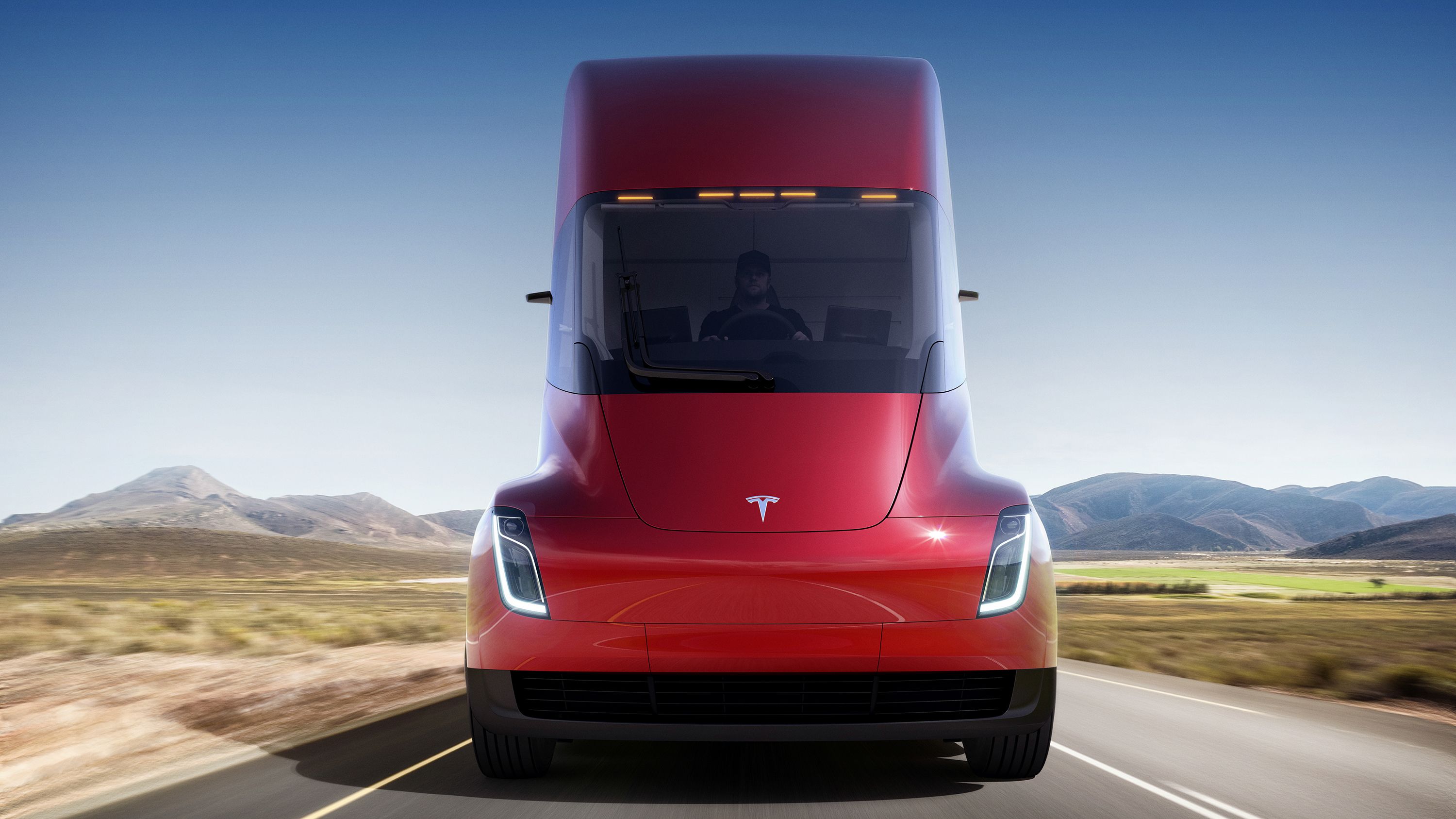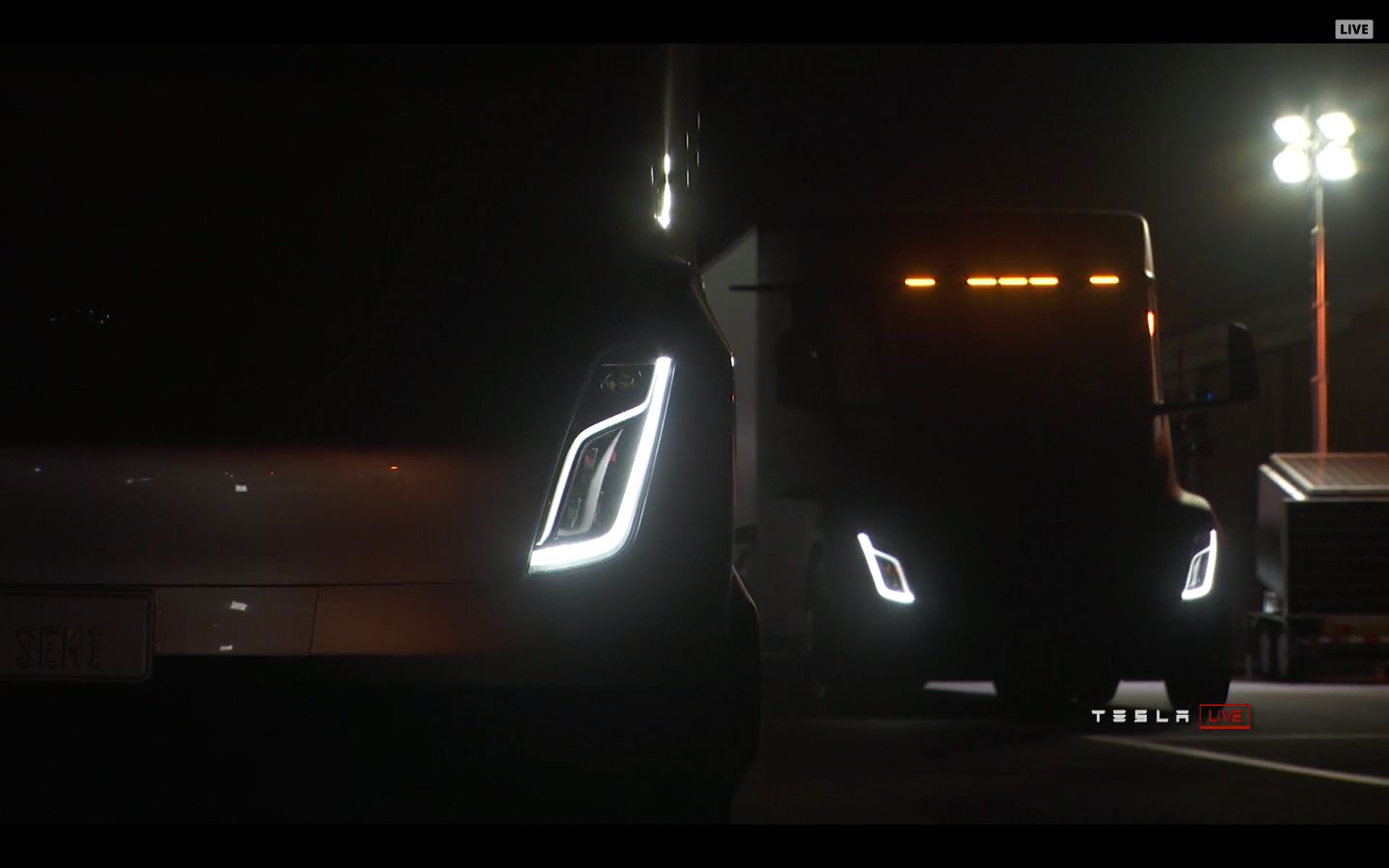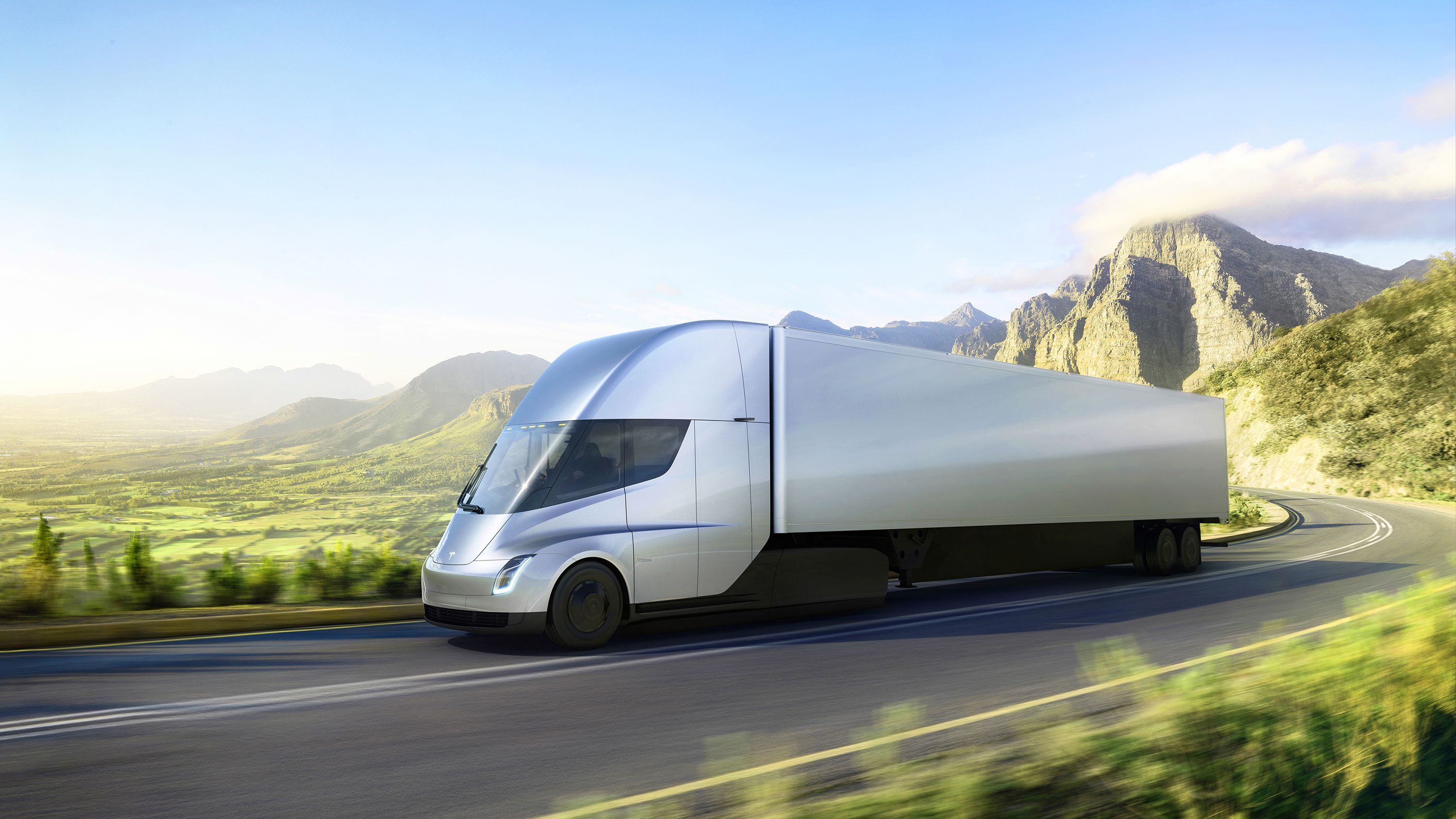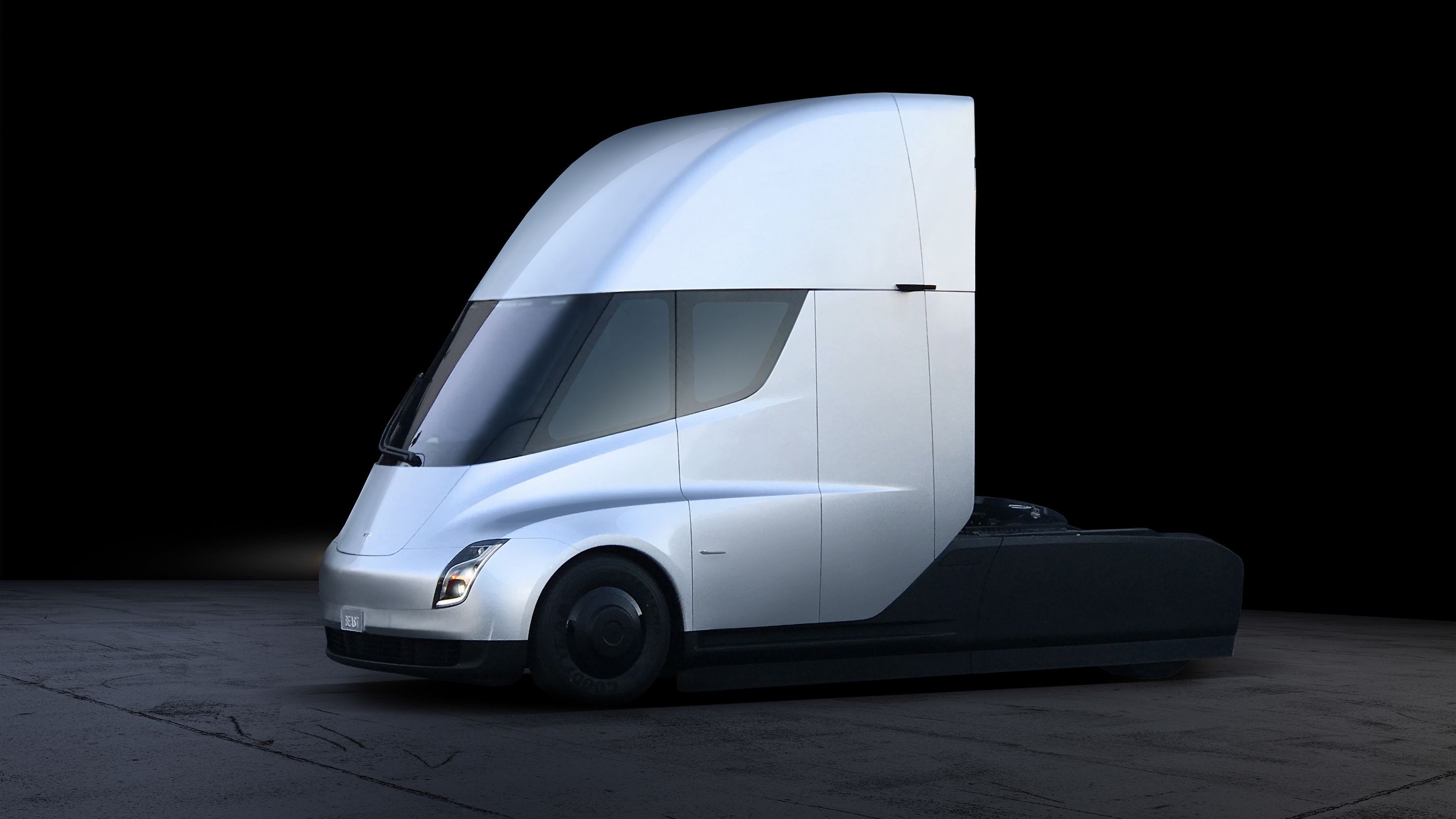Back in November, Tesla revealed its all-electric Semi, a product framed as nothing less than the catalyst to a battery-driven revolution in the freight industry. Now, the supporting infrastructure required to make the thing actually work in the real world is starting to come to light, as it was recently revealed that some of the companies that placed pre-orders for the Tesla Semi are assisting the California-based automaker in its effort to create a new “Mega Charger” network.
Continue reading for the full story.
The Full Story
When Tesla unveiled the Semi last year, it dropped quite a few rather unbelievable specs along the way. Unfortunately, unlike the world of passenger cars, there's very little room for interpretation here – either it works and the freight arrives on time, or it doesn't work and you lose money.
As such, the infrastructure required to power the EV Tesla Semi is absolutely critical to its success. To better suit the tight schedules drivers face every day on the road, Tesla is planning something called the Mega Charger network. Similar to Tesla's passenger-car focused Superchargers, a network composed of some 1,100 charge points scattered around the globe, the plan is to build big-and-burly Mega Chargers along routes heavily trafficked by freight movers, offering extra miles to help Semi drivers get the job done.
Solar power will be a major component of the Mega Charger network, with an array of panels installed at each location to buff up the flow of electrons. Tesla has guaranteed a 7-cent-per-kW cost rate for charging, which is below average compared to what you get from the grid and no doubt buoyed by the previously mentioned solar panels.
The Mega Chargers will also offer an impressive bump in charging rate over the standard Supercharger outlet, with Tesla boasting the potential for as much as 400 miles in just 30 minutes. Half an hour is also roughly the time it takes to unload and load freight, which would make the Mega Charger a solid solution for juicing up a fleet of trucks onsite at various distribution centers.
It would appear as though several major freight-reliant firms would agree, as Reuters is reporting that Tesla is teaming up with the likes of Anheuser-Busch, PepsiCo, and United Parcel Service Inc. to build Mega Chargers at select company facilities. Between them, the three companies mentioned have over 250 Tesla Semis on pre-order. In total, nine major firms have placed orders for the all-electric vehicle, with standouts including Wal-Mart Stores Inc., Sysco Corp., UPS, and the grocery chain Loblaw Companies Ltd.
For now, it looks as though the proposed routes each Semi would take would stay within their projected range per charge, which means the on-site Mega Chargers would be sufficient for operation. However, expansion is expected in the future.
PepsiCo, which has 100 Semis on reserve, chimed in. “We have a lot of in-house capability around energy and engineering... and certainly Tesla brings their expertise to the table on energy and charging,” said PepsiCo executive Mike O'Connell to Reuters.
The details of the partnership are still unknown, and it's uncertain what sort of compensation (if any) Tesla will receive for its design and engineering work. Building costs are also up in the air. However, it's believed that the various deals are still very much in a state of flux and could change in the future.
There's also reports that firms are looking into creating new all-electric infrastructure of their own to help bolster the proposed Tesla network around the U.S.
However, it's uncertain how Tesla will meet its proposed timetable, especially when you consider its history of pushed deadlines and the fact it's still struggling to meet the marks for its other model lines, specifically the Model 3. And that's particularly unsettling considering just how ambitious the Mega Charger plan is shaping up to be. Some analysts are saying Tesla won't even be able to deliver on its target delivery date for production of the Semi, which at the moment is set at 2019, making the new infrastructure proposals even more questionable. Meanwhile, there are further doubts among the major trucking companies as to whether the Tesla Semi can even deliver on its Reuters as promised in the reveal.
But hey – Tesla relishes any opportunity to play the under dog, so that's about par for the course.
As a reminder, Tesla says the Semi can achieve upwards of 500 miles per charge and hit 60 mph in just 5 seconds without a trailer. With a full 80,000-pound payload hitched up, Tesla says the Semi should be able to hit 60 mph in 20 seconds, as well as climb a 5-percent grade at 65 mph. Pricing is set between $150,000 and $200,000 depending on the range-per-charge option selected. CEO Elon Musk claims the cost of the Semi will be recouped in fuel savings alone over the course of a million-mile lifetime.
specs0}
Tesla Semi
Read our full review on the 2019 Tesla Semi.
Tesla Model 3
Read our full review on the 2018 Tesla Model 3.
Read more Tesla news.

